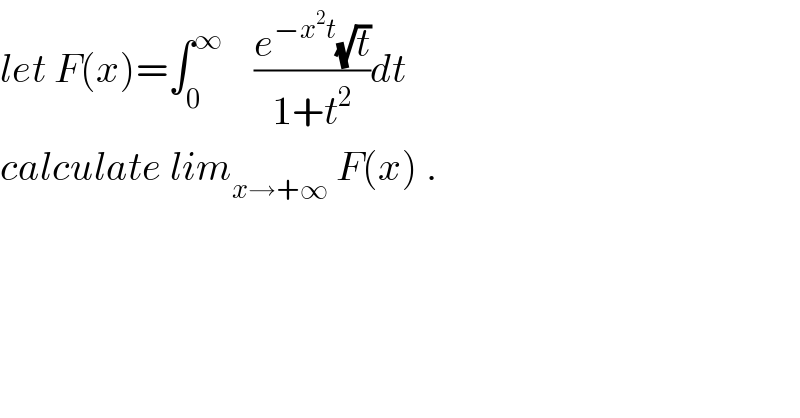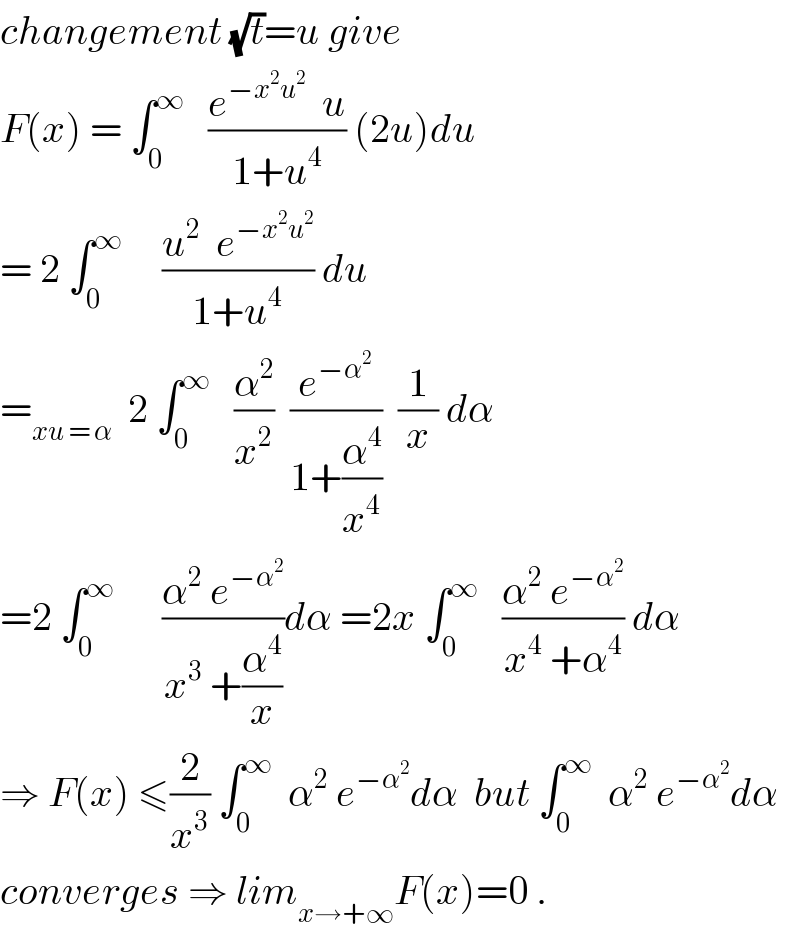
Question and Answers Forum
Question Number 36189 by prof Abdo imad last updated on 30/May/18

Commented by math khazana by abdo last updated on 18/Aug/18

| ||
Question and Answers Forum | ||
Question Number 36189 by prof Abdo imad last updated on 30/May/18 | ||
 | ||
Commented by math khazana by abdo last updated on 18/Aug/18 | ||
 | ||